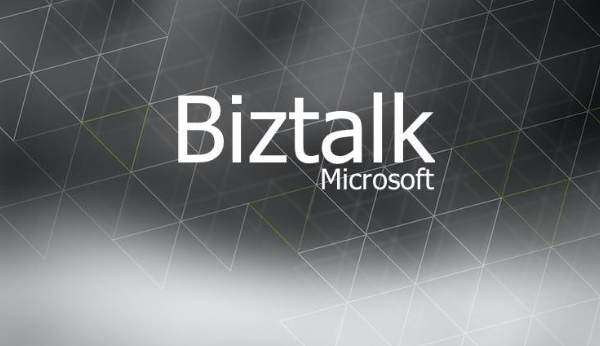Educational institutions from primary, secondary, and higher levels, should start implementing Customer Relationship Management or CRM software for educational organizations.
The CRM is helpful to enhance communication, engagement, and data analysis. This digital solution improves the overall experience for potential, current, and former students by tailoring their journeys to ensure effectiveness of the learning process.
What is CRM Software for Educational Organizations?
CRM software empowers educational institutions like schools, colleges, and universities to actively manage connections with students, parents, staff, alumni, and various stakeholders. It oversees the complete student lifecycle, from enrollment and monitoring academic progress to handling fundraising management and reporting tools.
Certain CRMs can merge with essential educational tools like learning management systems (LMS) and accounting software. The goal, in both scenarios, is to enhance communication, streamline operations, and most importantly, enhance student outcomes by providing students, parents, and teachers with essential information.
Benefits of CRM Software for Educational Organizations
Below are some key advantages of utilizing an educational CRM.
1. Tailored Communication for Educational Organizations
By monitoring students’ engagements on your website, social media, or other online channels, you can deliver pertinent information when they need it. For instance, if current or prospective students show interest in particular courses or majors, CRM software for educational organizations facilitates direct communication with departments.
Therefore, it allows the creation of personalized content for outreach as well as the provision of course-specific information they seek.
2. Fast Responses
Secondly, the CRM platform streamlines immediate responses when a potential student sends a message through the college’s contact page or via social media. For instance, CRM software for educational organizations offers integration with email software, live chatbots, and other vital tools to automate messages and set reminders.
3. Simplified Admission Process
Your CRM platform enhances the admission process, minimizing the necessity for paperwork, spreadsheets, and additional staff to sift through traditional applications. As a result, applicants can complete their submissions on the platform and upload the necessary documents for a positive user experience.
At the CRM backend, all documents are stored in a centralized location, accessible to staff for applicant updates.
4. Enhanced Donor Engagement
A CRM manages relationships with donors, alumni, and other stakeholders. By tracking donations and pledges, prompt acknowledgment and gratitude towards donors are ensured. Managing donor information aids in monitoring fundraising goals and progress, facilitating the production of reports to secure additional funding.
With CRM software for educational organizations, contact details for each donor can be conveniently stored, integrated with preferred email and meeting software, and templates established for streamlined communication.
5. Improved Student Lifecycle Experience
CRM software offers advantages across the complete student journey, from the initial class to graduation, career planning, and placement. Monitoring data such as contact details, demographics, and academic progress aids in identifying at-risk students for timely intervention to prevent dropouts.
Furthermore, CRM may also encourage former students to expand the donor base by inviting those with undergraduate degrees to return for graduate school or university-sponsored events. Maintaining contact with former students could also enhance recruitment by encouraging them to reach out to prospective college applicants in their regions.
6. Removed Data Segregation
CRMs ensure that information from various departments is centrally stored and accessible throughout the organization, rather than faculties operating in isolation. Staff can access detailed insights from a centralized dashboard, promoting transparency.
7. Enhanced Comprehension of Challenges
A consolidated CRM system provides a holistic view of the educational institution by merging information from admissions and student experiences. The CRM integrates data from various systems to enhance the comprehension of the entire operational landscape.
What to Look for in CRM Software for Educational Organizations
When selecting education CRM software, it is essential to seek a tool that provides the following:
- Substantial scalability to handle large capacities effectively.
- Robust security measures to safeguard both student and teacher data. It is crucial to note that numerous educational institutions handle sensitive details, such as students’ social security numbers and medical records, which require security.
- Robust CRM integrations facilitate streamlined automation and coordination across multiple tools, enabling easy synchronization of leads from school advertisements on platforms like Facebook Ads to your CRM.
- The capability for several team members to securely access and collaborate on data.
- Dependable and effective customer support ensures swift resolution of any issues.
- A secure and trustworthy tool for bulk file uploads.
Best CRM Software for Educational Organizations
Here are some of the best recommendations for CRM software for educational organizations.
1. Zoho CRM
Zoho CRM is accessible via web app, and it offers mobile support for both iOS and Android platforms. The CRM provides educational sector functionality so that users can manage their student information.
This CRM manages leads and contacts by centralizing student, faculty, and donor contact details in one place. This CRM utilizes pipeline tracking to forecast resources and admission numbers throughout your institution. For social media incorporation, link the CRM with external social platforms for overseeing student interaction data.
2. Pipedrive
Pipedrive is a user-friendly CRM platform hosted in the cloud. This CRM aids professionals in managing potential leads, engaging with clients, automating various tasks, and assessing performance through key performance indicators (KPIs).
Utilizing Pipedrive’s educational CRM for universities and higher education institutions, users can monitor engagements with stakeholders across multiple channels, enhance admission rates, and enhance communication between faculty and students.
Furthermore, educational institutions can leverage the platform to store information, automate acceptance notifications, monitor email interactions, establish a customized application process, and simplify enrollment processes, among other functionalities.
3. Monday Sales CRM
Monday Sales CRM represents a transformative collaborative platform that empowers users to oversee communication across departments, programs, and student interactions from any location.
This CRM connects with over 72 third-party applications and services to serve as a central repository for your campus’s information. For accessibility, this CRM provides mobile applications for both iOS and Android devices, ensuring convenient remote access.
4. Salesforce Education Cloud
The Salesforce Education Cloud is a specialized addition that sits above the standard Salesforce CRM. This type delivers a set of functionalities customized for educational institutions.
The CRM empowers your departments to advance digital strategies by transitioning to a cloud-based management platform. This will enhance the management of students and faculty.
With this CRM, you can utilize engagement tools to gather insights into both current and potential student interactions.
Choose Your Best CRM Software for Educational Organizations!
Opting for the appropriate education CRM can empower your staff to enhance the efficiency of their work. Education CRM facilitates admission campaigns and streamlines the admissions process comprehensively.
In sum, this enhancement can lead to your school delivering an exceptional student experience. This experience gives your institution a competitive advantage over other traditional educational organizations.
Remember to select a CRM specifically crafted for educators and educational organizations. You need to choose a CRM that can emphasize security, data-driven capabilities, scalability, and a wide array of integration options. This ensures the tool functions optimally, allowing you to perform at your best for your students.
Bagikan










